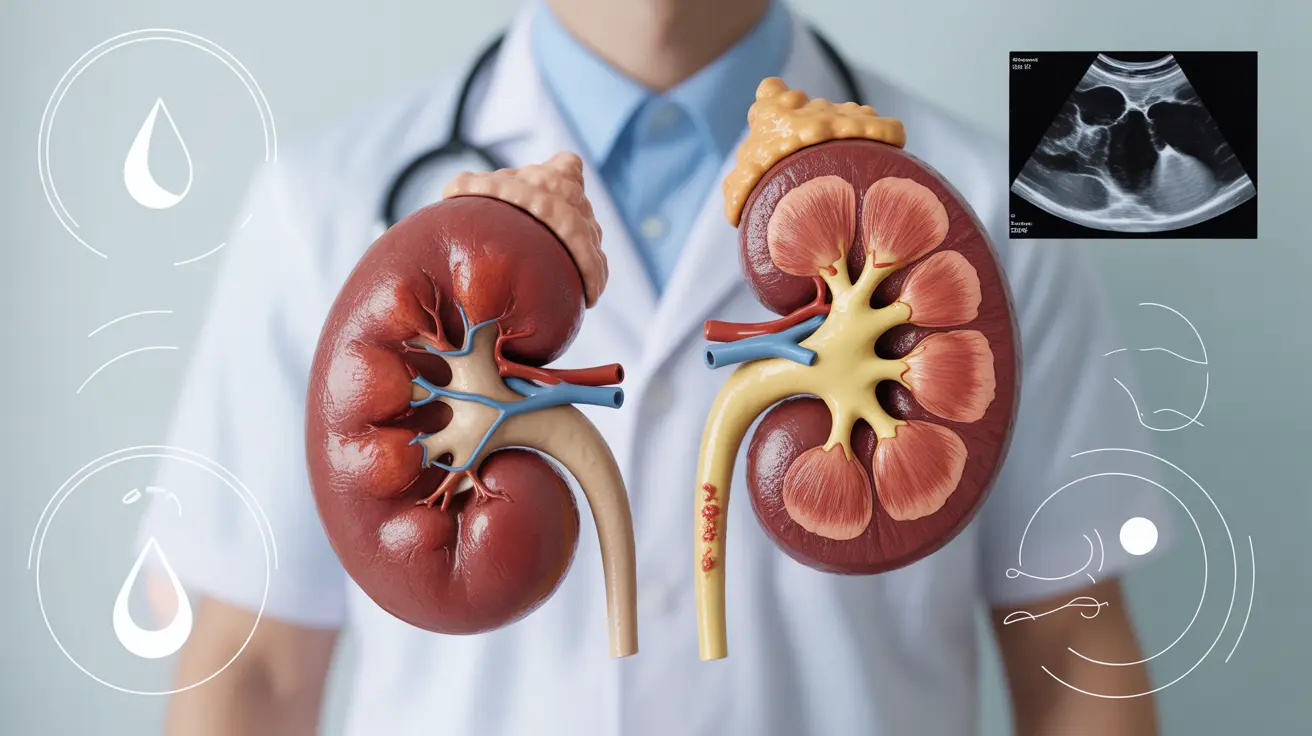When discussing serious medical conditions affecting the kidneys, you may encounter both "kidney failure" and "renal failure" in medical literature and conversations with healthcare providers. Understanding these terms and their implications is crucial for patients and their families facing kidney health challenges.
This comprehensive guide will explain the relationship between these terms, explore different types of kidney failure, and provide essential information about diagnosis, treatment options, and prevention strategies.
The Relationship Between Kidney Failure and Renal Failure
Simply put, kidney failure and renal failure refer to the same medical condition. The term "renal" comes from the Latin word "renes," meaning kidneys. Medical professionals often use these terms interchangeably when describing situations where the kidneys can no longer effectively filter waste products from the blood.
Types of Kidney (Renal) Failure
Acute Kidney Failure
Acute kidney failure, also known as acute renal failure or acute kidney injury (AKI), develops rapidly, often within a few days. This condition typically occurs in response to:
- Severe dehydration
- Blood loss
- Severe infection
- Certain medications
- Direct injury to the kidneys
The good news is that acute kidney failure can often be reversed if diagnosed and treated promptly.
Chronic Kidney Disease (CKD)
Chronic kidney disease represents a gradual loss of kidney function over months or years. Common causes include:
- Diabetes
- High blood pressure
- Chronic infections
- Autoimmune disorders
- Genetic conditions
Diagnosis and Warning Signs
Early detection of kidney failure is crucial for better outcomes. Key warning signs include:
- Decreased urine output
- Swelling in legs, ankles, or feet
- Shortness of breath
- Fatigue
- Confusion
- Nausea
- Irregular heartbeat
Healthcare providers diagnose kidney failure through various tests, including:
- Blood tests (BUN and creatinine levels)
- Urine tests
- Imaging studies (ultrasound or CT scan)
- Kidney biopsy (in some cases)
Treatment Approaches
Treatment options for kidney failure vary depending on the type and severity of the condition. Common interventions include:
Conservative Management
- Dietary modifications
- Medication adjustments
- Blood pressure control
- Blood sugar management
Dialysis
When kidneys can no longer function adequately, dialysis becomes necessary. Two main types are available:
- Hemodialysis: Blood filtering through a machine
- Peritoneal dialysis: Using the body's abdominal lining as a natural filter
Kidney Transplantation
For some patients, kidney transplantation offers the best long-term solution, though it requires careful evaluation and ongoing management.
Prevention and Lifestyle Modifications
Several lifestyle changes can help protect kidney function and prevent progression of kidney disease:
- Maintaining healthy blood pressure
- Controlling blood sugar levels
- Following a kidney-friendly diet
- Staying hydrated
- Regular exercise
- Avoiding smoking
- Limiting alcohol consumption
Frequently Asked Questions
Is renal failure the same as kidney failure, or do they mean different things?
Yes, renal failure and kidney failure are exactly the same condition. "Renal" is simply the medical term for anything related to the kidneys, derived from Latin. Healthcare providers use these terms interchangeably in medical settings.
What are the main differences between acute renal failure and chronic kidney disease?
Acute renal failure develops suddenly, often within days, and may be reversible with prompt treatment. Chronic kidney disease develops gradually over months or years and typically causes permanent damage. The causes, treatment approaches, and prognosis differ significantly between these conditions.
How is kidney failure diagnosed and when should I see a doctor?
Kidney failure is diagnosed through blood tests, urine tests, imaging studies, and sometimes kidney biopsy. You should see a doctor immediately if you experience symptoms like decreased urination, swelling, shortness of breath, or confusion. Regular check-ups are essential for those with risk factors like diabetes or high blood pressure.
What treatment options are available for someone with kidney (renal) failure?
Treatment options include conservative management (medications and dietary changes), dialysis (hemodialysis or peritoneal dialysis), and kidney transplantation. The chosen treatment depends on the type and severity of kidney failure, overall health status, and personal preferences.
Can kidney failure be reversed or prevented, and what lifestyle changes help protect kidney function?
Acute kidney failure may be reversible with proper treatment. Chronic kidney disease typically cannot be reversed but can be managed to slow progression. Prevention strategies include controlling blood pressure and diabetes, maintaining a healthy diet, staying hydrated, exercising regularly, and avoiding smoking and excessive alcohol consumption.




